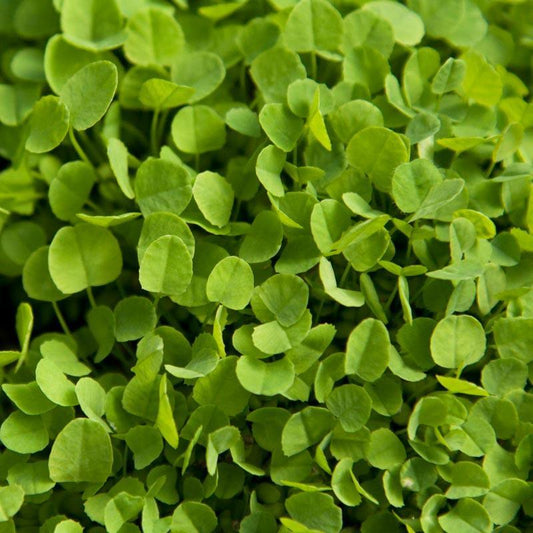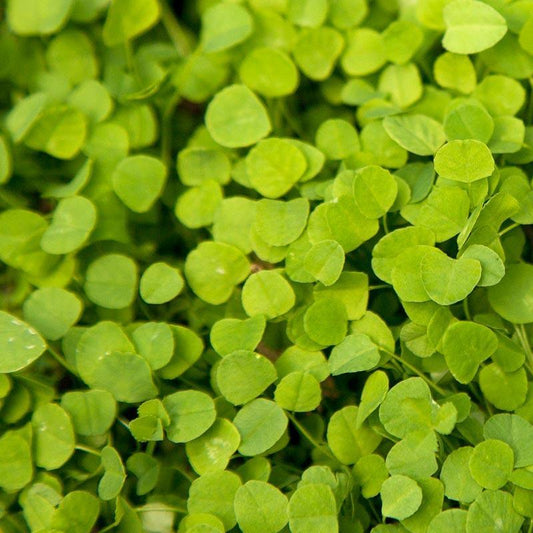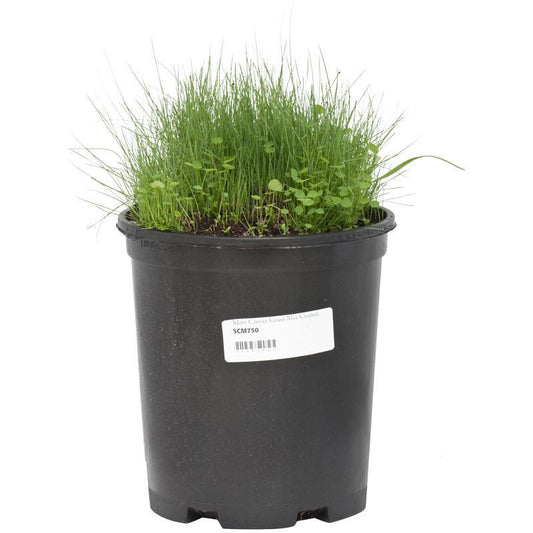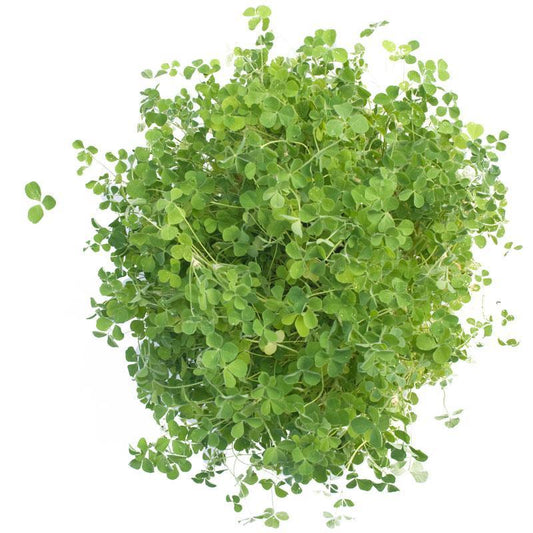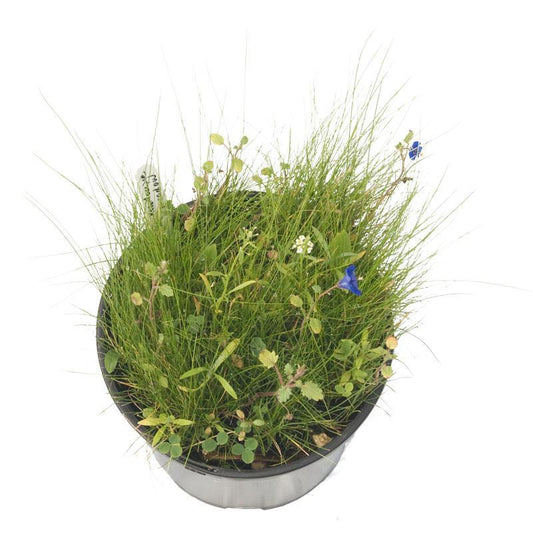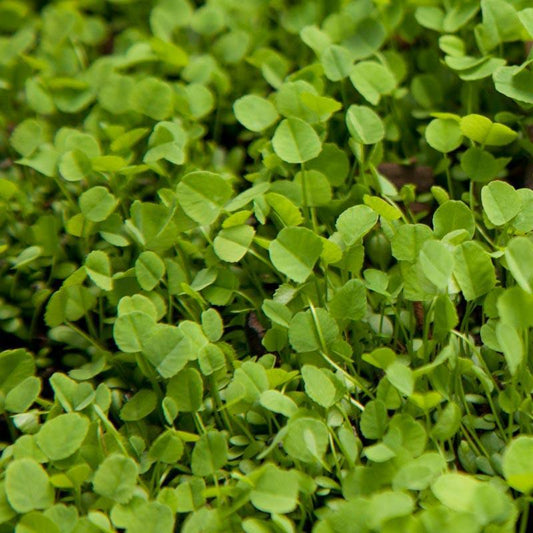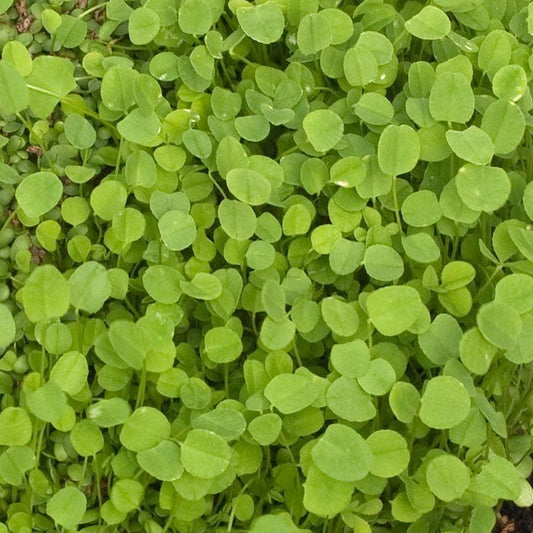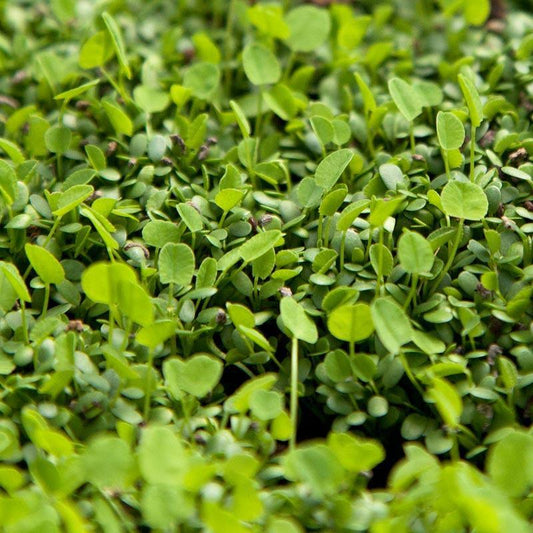Collection: Clover Seed - Smart and Eco-Friendly for Lawns & Cover Crops
Looking for a sustainable solution for your outdoor spaces? Our premium clover seeds for sale offer a natural alternative to traditional grass seed. Whether you're planting a clover lawn, enriching soil with a cover crop, or establishing wildlife food plots, clover is a versatile, eco friendly option that supports pollinators, reduces maintenance, and improves soil health.
Why Plant Clover?
-
Nitrogen fixing: Clover improves soil fertility without synthetic fertilizers.
-
Drought tolerant: Ideal for low-water landscaping in drained soils.
-
Maintenance lawn solution: Less mowing and irrigation than lawn grasses.
-
Attracts beneficial insects: Bees and butterflies thrive on clover flowers.
-
Natural ground cover: Controls erosion and suppresses weeds.
- Perfect for early fall or spring planting.
For more, see The Inside on Cover Crops and our Cover Crop Growing Guide.
Best Uses for Clover Seeds
-
Clover seeds for lawn: Create a resilient, green maintenance lawn that stays lush year-round.
-
Cover crop applications: Improve tilth, break pest cycles, and add organic matter. Learn more in our Cover Crops article.
-
Food plots: Attract deer, turkey, and other wildlife naturally.
-
Companion planting: Clover supports crops like corn by enhancing soil and reducing competition. Learn more about companion planting with corn.
Clover Varieties and Their Benefits
-
White Dutch Clover: Low-growing, excellent for a clover lawn and pollinators.
-
White Clover: Broadly adaptable and excellent seed for lawns.
-
Red Clover: Great for soil building and biomass. See Red vs. Crimson Clover.
-
Ladino Clover: Larger-leaf variety, ideal for food plots and livestock.
-
Strawberry Clover: Thrives in moist areas and provides decorative ground cover.
-
Micro Clover: Perfect for a uniform, low maintenance lawn in smaller square feet spaces.
How to Plant Clover Seeds
-
When to Plant: Spring or early fall for best germination.
-
Soil Prep: Remove weeds, loosen drained soils, and ensure good seed-to-soil contact.
-
Seeding Rate: 1 lb covers 1,000–4,000 square feet, depending on variety.
-
Planting Depth: No deeper than ¼ inch.
-
Germination: Expect sprouts in 7–14 days with proper moisture.
Why Buy Clover Seeds from Grow Organic?
- Available in bulk and custom blends for clover seeds for lawn, cover crop, and forage use.
- Includes top varieties like red clover, white clover, and white dutch clover.
- Supports sustainable agriculture and pollinator-friendly landscaping.
Explore our full collection of premium clover seeds for sale to grow healthier soils, greener lawns, and more productive gardens.


